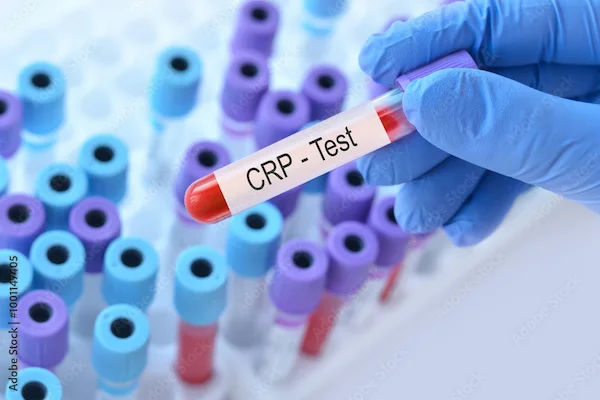Maximum Delay for Periods Without Pregnancy
How late can your period be without pregnancy? Understand normal cycle variations and common non-pregnancy causes for missed or delayed periods, including stress, weight changes, PCOS, and more. Learn when to consult a doctor.

Written by Dr. Siri Nallapu
Reviewed by Dr. D Bhanu Prakash MBBS, AFIH, Advanced certificate in critical care medicine, Fellowship in critical care medicine
Last updated on 28th Jul, 2025

A delayed period can be a source of worry, especially if you're not pregnant. While occasional irregularities are normal, a prolonged delay may indicate an underlying health issue. This article explains the possible reasons for a missed period, when to seek help, and how to manage irregular cycles.
What is Considered a Delayed Period?
A typical menstrual cycle lasts between 21 to 35 days. If your period is more than 5-7 days late (beyond your usual cycle length), it is considered delayed. If you miss your period for three months or more, it is called amenorrhea (absence of menstruation).
Common Causes of Delayed Periods (Without Pregnancy)
Several factors can cause a delayed period besides pregnancy. These include:
1. Stress
- High stress levels disrupt hormones like cortisol, which can delay ovulation and menstruation.
2. Weight Fluctuations
- Sudden weight loss or low body fat (common in athletes or eating disorders) can stop periods.
- Obesity can lead to hormonal imbalances, causing irregular cycles.
3. Polycystic Ovary Syndrome (PCOS)
- PCOS is a hormonal disorder where the ovaries produce excess androgens (male hormones), leading to irregular or missed periods.
4. Thyroid Disorders
- An underactive (hypothyroidism) or overactive (hyperthyroidism) thyroid can disrupt menstrual cycles.
5. Excessive Exercise
- Intense physical activity (e.g., marathon training) can reduce estrogen levels, delaying periods.
6. Chronic Illnesses
- Conditions like diabetes, celiac disease, or hormonal disorders can affect menstruation.
7. Medications & Birth Control
- Hormonal contraceptives (pills, IUDs) may cause lighter or missed periods.
- Certain medications (antidepressants, chemotherapy) can also delay periods.
8. Perimenopause (Approaching Menopause)
- Women in their late 40s or early 50s may experience irregular cycles before menopause.
When Should You See a Doctor?
Consult a doctor if:
- Your period is more than 3 months late without pregnancy.
- You experience sudden weight changes, excessive hair growth, or acne (possible PCOS).
- You have pelvic pain, headaches, or vision changes (could indicate hormonal issues).
- You’re under 16 and haven’t gotten your first period (primary amenorrhea).
How to Manage Delayed Periods Naturally
Ways to manage delayed periods naturally:
1. Reduce Stress
- Practice yoga, meditation, or deep breathing exercises.
- Get 7-8 hours of sleep daily.
2. Maintain a Healthy Weight
- Avoid crash diets—opt for balanced meals with proteins, healthy fats, and fiber.
- If overweight, gradual weight loss can help regulate periods.
3. Exercise Moderately
- Avoid excessive workouts—aim for 3045 minutes of moderate activity (walking, swimming) daily.
4. Eat a HormoneBalancing Diet
- Ironrich foods: Spinach, lentils, red meat (if deficient).
- Omega-3 fatty acids: Flaxseeds, walnuts, fish.
- Vitamin D: Sunlight, fortified milk, eggs.
- Avoid processed foods & excess sugar.
5. Herbal Remedies (Consult a Doctor First)
- Ginger tea may help induce periods.
- Cinnamon can regulate insulin levels (helpful for PCOS).
Medical Treatments for Delayed Periods
If lifestyle changes don’t help, your doctor may recommend:
- Hormonal therapy (birth control pills to regulate cycles).
- Thyroid medication (if hypothyroidism is the cause).
- Metformin (for PCOS-related insulin resistance).
- Fertility treatments (if trying to conceive).
Consult Top Gynaecologist
When to Take a Pregnancy Test?
If sexually active, take a home pregnancy test after 7-10 days of a missed period. If periods remain irregular, consult a doctor.
Final Thoughts
Occasional period delays are normal, but persistent irregularities need attention. Simple lifestyle changes—like managing stress, eating well, and moderate exercise—can help. If your period is missing for more than 3 months, consult a doctor to rule out underlying conditions.
Need Help?
If you're concerned about irregular periods, you can book a consultation with a gynecologist on Apollo 24|7 for personalized advice and treatment options.
Stay informed, stay healthy!
Consult Top Gynaecologist
Consult Top Gynaecologist

Dr. Alapati Jyotsna
Obstetrician and Gynaecologist
4 Years • MBBS MS Obstetrics and Gynaecology
Visakhapatnam
Apollo 24|7 Clinic - Andhra Pradesh, Visakhapatnam

Dr. Priyanka Surisetty
Obstetrician and Gynaecologist
8 Years • MBBS, DGO
Visakhapatnam
Apollo 24|7 Clinic - Andhra Pradesh, Visakhapatnam
(150+ Patients)

Dr Swatika Kumari
Obstetrician and Gynaecologist
19 Years • MBBS, DGO, DNB Obstetrics & Gynaecology
Nashik
Apollo 24|7 Clinic - Maharashtra, Nashik

Dr. Sangeetha M
Obstetrician and Gynaecologist
20 Years • MBBS,Dipolma in Obstetrics & Gynaecology
Bansdroni
Siddhita Healthcare., Bansdroni

Dr. Srinka Mukherjee
Obstetrician and Gynaecologist
7 Years • MBBS, MS Obstetrics & Gynaecology
Kolkata
Doctor's World, Kolkata
Consult Top Gynaecologist

Dr. Alapati Jyotsna
Obstetrician and Gynaecologist
4 Years • MBBS MS Obstetrics and Gynaecology
Visakhapatnam
Apollo 24|7 Clinic - Andhra Pradesh, Visakhapatnam

Dr. Priyanka Surisetty
Obstetrician and Gynaecologist
8 Years • MBBS, DGO
Visakhapatnam
Apollo 24|7 Clinic - Andhra Pradesh, Visakhapatnam
(150+ Patients)

Dr Swatika Kumari
Obstetrician and Gynaecologist
19 Years • MBBS, DGO, DNB Obstetrics & Gynaecology
Nashik
Apollo 24|7 Clinic - Maharashtra, Nashik

Dr. Sangeetha M
Obstetrician and Gynaecologist
20 Years • MBBS,Dipolma in Obstetrics & Gynaecology
Bansdroni
Siddhita Healthcare., Bansdroni

Dr. Srinka Mukherjee
Obstetrician and Gynaecologist
7 Years • MBBS, MS Obstetrics & Gynaecology
Kolkata
Doctor's World, Kolkata




